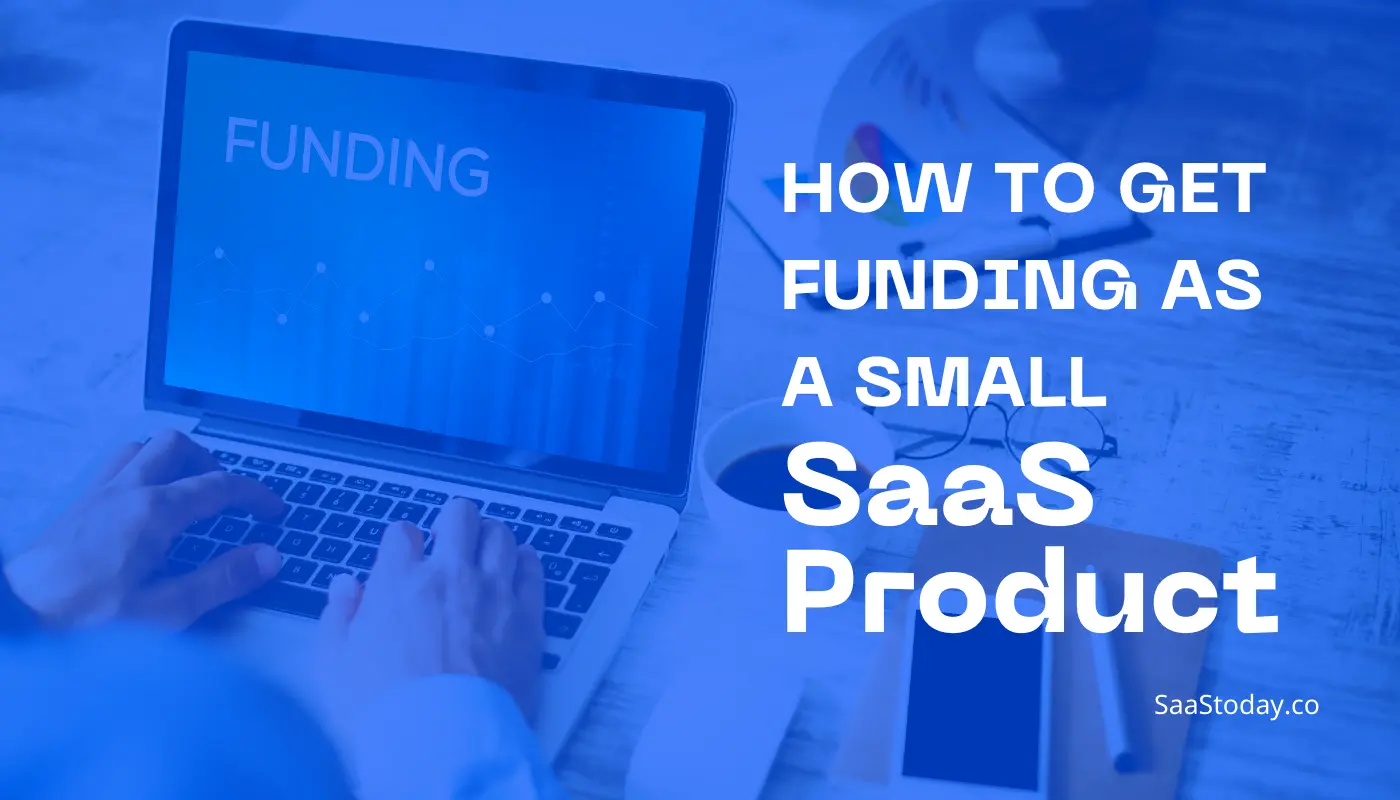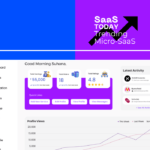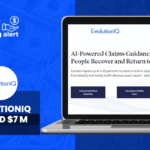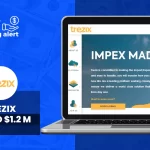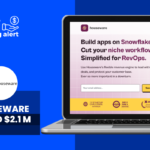In the expeditious, ever-evolving realm of Software as a Service (SaaS), securing funding as a small SaaS is a critical step to making a mark. While having an innovative product and a dedicated team is important, capital is the fuel that propels growth, facilitates scalability, and drives market penetration. For small SaaS products, this journey toward funding can seem daunting, often mired in competition and high investor expectations. This article provides a detailed roadmap for small SaaS businesses seeking funding, highlighting practical steps, potential pitfalls, and success strategies.
Understanding Your Niche:
Before approaching potential investors, it’s crucial to have a deep understanding of your product’s niche. What specific problem does your SaaS product solve? Who are your target customers? How large is the potential market? Demonstrating a clear understanding of your niche will not only help you position your product effectively but also show investors that there’s a demand for what you’re offering.
Building a Strong Business Model:
Investors fund more than just ideas; they fund businesses with the potential for high returns. As such, a well-structured business model is essential. This includes a clear plan for generating revenue, projected financials, and a pathway to profitability. Ensure your business model is scalable, with the flexibility to adapt to market changes.
Perfecting Your Pitch:
Your pitch is your gateway to securing funding. It should be compelling, succinct, and memorable, highlighting the problem your product solves, why your solution is unique, and how you plan to make money. Remember, investors hear numerous pitches; make yours stand out. Practicing in front of mentors, business advisors, or fellow entrepreneurs can provide valuable feedback before the actual pitch.
Exploring Funding Options:
- Bootstrapping: This involves funding your business using personal savings or revenue from the business itself. It’s a viable option for those who want to retain full control over their company but requires careful budget management.
- Angel Investors: These are individuals who provide capital for startups, often in exchange for convertible debt or ownership equity. They can also offer valuable mentorship and advice.
Notable Angel Investors:
- Jason Calacanis – Technology, various industries
- Peter Thiel – Technology, various industries
- Fabrice Grinda – Marketplaces, consumer products
- Naval Ravikant – Technology, various industries
- Esther Dyson – Health, technology
- Ron Conway – Technology, various industries
- Chris Sacca – Technology, various industries (though he’s less active now)
- Ben Horowitz – Technology, various industries
- Marc Andreessen – Technology, various industries
- David Tisch – Consumer, retail, technology
Angel Investor Networks/Platforms:
- AngelList (angel.co) – A popular platform for startups to meet investors.
- Gust (gust.com) – Connects startups with a large pool of investors.
- SeedInvest (seedinvest.com) – Platform for meeting accredited investors.
- Band of Angels (bandangels.com) – Silicon Valley-based angel investment group.
- Tech Coast Angels (techcoastangels.com) – Large angel investor network in Southern California.
- Golden Seeds (goldenseeds.com) – An investment firm that focuses on women leaders.
- Hyde Park Angels (hydeparkangels.com) – Focuses on early-stage Midwestern startups.
- New York Angels (newyorkangels.com) – New York-based angel investment group.
- Sand Hill Angels (sandhillangels.com) – Group of investors supporting startups with funding and expertise.
- Houston Angel Network (houstonangelnetwork.org) – Angel investor network based in Houston, Texas.
- Venture Capital: VC firms invest large sums in startups they believe have high growth potential, typically taking an equity stake and an active role in company decisions.
here’s a list of 20 venture capital firms with a brief introduction to each and their respective website links:
- Sequoia Capital: A leading VC firm known for early-stage investments with a global presence.
- Andreessen Horowitz (a16z): Focused on investing in technology companies at various stages.
- Benchmark: Primarily focuses on early-stage investments in technology.
- Accel: Known for both early and growth-stage investments globally.
- Greylock Partners: Invests in companies across sectors from seed to growth stages.
- Insight Partners: Specializes in growth-stage technology and software companies.
- Bessemer Venture Partners: Early-stage investments across industries, including SaaS.
- First Round Capital: Provides seed-stage funding to technology companies.
- Lightspeed Venture Partners: Funding from seed to late-stage across various sectors.
- NEA (New Enterprise Associates): Large VC firm investing in technology and healthcare.
- Index Ventures: Technology-focused investments at all stages of growth.
- Balderton Capital: Early-stage tech investments, based in Europe.
- Battery Ventures: Invests across stages and sectors, including tech.
- Redpoint Ventures: Funding for various stages, primarily technology-based companies.
- Union Square Ventures: Early-stage investments, focusing on technology.
- Venrock: Diverse sector investments at different development stages.
- Social Capital: Tech startups with a philosophy of societal improvement.
- SaaStr Fund: Specifically focused on early-stage SaaS businesses.
- Emergence Capital: Specializes in early and growth-stage cloud companies.
- GGV Capital: Invests from seed to growth stages in the US and Asia.
Before reaching out to these firms, it’s recommended to research each one thoroughly to understand their investment focus, portfolio, and submission criteria to ensure a good fit between the VC’s investment strategy and your company’s stage and sector.
- Crowdfunding: Crowdfunding websites can be a great resource for SaaS (Software as a Service) startups looking to raise funds without going the traditional investor route. Here are ten platforms that cater to a variety of crowdfunding needs, including equity-based and rewards-based funding:
- Kickstarter: One of the most popular rewards-based crowdfunding platforms, where innovative projects can find contributors.
- Indiegogo: A global crowdfunding platform where you can create campaigns for tech innovations, including SaaS, either for equity or rewards.
- Patreon: Best suited for creators and SaaS platforms that provide ongoing services or content, as it allows for recurring funding from supporters.
- Crowdcube: An equity crowdfunding platform that allows people to invest in small-to-medium-sized businesses, including SaaS startups.
- SeedInvest: This platform allows for equity-based crowdfunding, and it’s known for its rigorous vetting process for startups.
- Fundable: A business crowdfunding platform that offers both rewards-based and equity-based campaigns for startups.
- StartEngine: This equity crowdfunding platform allows everyday people to invest in startups and early-stage companies.
- Republic: A platform where startups can raise money through equity, revenue share, and token campaigns, and anyone can invest.
- Wefunder: It connects startups with investors online. Wefunder allows for a variety of funding types, including equity, debt, and revenue share.
- CircleUp: This platform is known for investing in early-stage consumer brands, but its credit division might be relevant for SaaS companies needing loans.
When considering crowdfunding for your SaaS product, ensure to research each platform in detail, as they each have unique requirements, audiences, and funding models. Additionally, successful crowdfunding often depends on a strong promotional strategy and a clear value proposition for potential backers.
Before you connect investors:
- Preparing a Solid MVP: Investors want proof that your concept works. Develop a Minimum Viable Product (MVP) — a version of your product with enough features to satisfy early customers and provide feedback for future development. An MVP demonstrates your product’s potential and shows investors you have something tangible.
- Leveraging Networks: Networking can be a powerful tool for securing funding. Engage with the entrepreneurial community, attend industry events, and participate in startup accelerators or incubators. These networks can provide access to valuable contacts, advisors, and potential investors.
- Understanding and Negotiating Terms: Once investors show interest, they’ll present a term sheet outlining the details of the investment. It’s crucial to understand these terms, including valuation, equity, voting rights, and exit strategy. Don’t hesitate to negotiate terms and consult with legal advisors to ensure your interests are protected.
- Showcasing a Dedicated Team: Investors invest in people, not just products. Showcase your team’s expertise, passion, and commitment to the business. Highlighting previous successes, relevant experience, and the unique skills each team member brings to the table can be a significant persuading factor.
